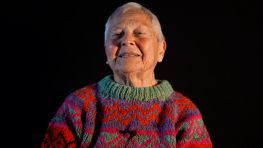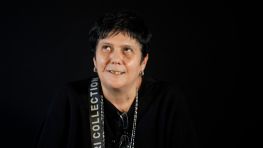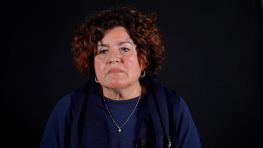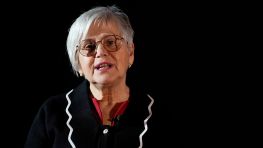 A life for others
A life for others Massimiliano Sciretti
The first President of the Nurses' Order
Massimiliano Sciretti is the President of the Turin Nursing Order and the head of bed management of the city. He graduated as a nurse in 1991 at the age of 19 and the following year obtained his baccalaureate. He enrolled in the faculty of psychology which he soon abandoned due to dissatisfaction with the educational path.
The need to expand his knowledge and skills, leads him to train and specialize in critical area. His path in this area is also realized with professional experience in Operations Center 118; here it contributes to the birth of the 118 emergency system of the city of Turin. His professional career evolves first in the coordination of the emergency department of the Martini hospital in Turin and then in the role of head of department of the same health company. At the same time he gained experience as an adviser in the former nursing college of Turin carrying out 3 mandates. In 2018 he was elected first President of the nascent Professional Nursing Association of Turin, a very stimulating role for continuous professional comparison and for the contribution to professional policy. For him, being President represents a personal and professional challenge: he believes, in fact, that the professional regulatory aspect has evolved first rather than the cultural aspect of professionals. Its goal is the integration between Order, University and Organization.
During his professional career he encountered numerous obstacles due to the lack of recognition of the role by the other health professions. The level of professional satisfaction on the part of the category is deficient because of management difficulties because of a lack of human resources and lack of economic recognition.
He believes a lot in the sustainability of the NHS.
The advice you give to young people is to choose the profession with passion for the potential it has on professional development; in reference to this consideration he set up the Youth Council to be trained on professional policy and the ability to reflect.
His hope is to be able to contribute to the development of the profession by enhancing professional policy and the experentic baggage of professionals, since the system is currently not able to make optimal use of resources. The vivid memory of the difficult care situations faced is a source of enrichment for the profession and represents moments for which it is worth being competent.
He concludes by saying: 'it is a unique profession'.
Video table of contents
- Educational and professional path from birth to today
- The transition from College to Order: the new assignment
- Professional development: analysis
- The profession from the citizen's point of view
- The potential of the profession
- The obstacles encountered
- The degree of satisfaction of professionals: evaluations
- The transition from the clinic to the organization
- Advice to young people
- The awareness of being a professional
- A look to the future: how to pass on professional culture
- Events that have strengthened the professional dimension
- Conclusion: what the profession is like
Interview information
Country: IT
Region: Piemonte
City: Torino
Massimiliano Sciretti
Year: 1972
City: Torino
School: University
Profession: Nurse
Languages: Italiano
Document by: Roberta Cabiddu – Angela Conte – Arianna Dattoli – Paola Donadio – Elisabetta Laveglia – Massimo Galvagno
Video by: Roberta Cabiddu, Giacomo Patrizio
Created: 25-10-2019
Questo video fa parte del seguente archivio
Knowledge of healing
Knowledge of healing
The archive “knowledge of Healing” was created with the aim of giving space to the narration of the places of healing from a particular point of view: that of the patients and the medical staff. A point of view which differs from the statistical one that official relations use to describe the medical field. This is how we find new stories about how throughout time the relationship between patients and medical staff has changed, how knowledge has helped to bring change by offering the chance to critically revisit the training methods nowadays used.






